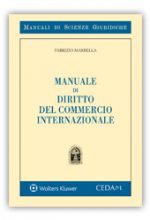The year 2016 did not only mark 30 years since the great reform of German private international law in 1986, but it was also the 35th anniversary of the foundation of the Praxis des Internationalen Privat- und Verfahrensrechts (IPRax). Therefore, Professor Heinz-Peter Mansel, President of the German Council for Private International Law and editor-in-chief of IPRax, and Professor Jan von Hein, chairman of the Council’s 2nd Commission, organized a celebratory conference on 23-24 September 2016 at the University of Cologne (Germany) under the title: “Codification of Private International Law: German Experience and European Perspectives Thirty Years After the PIL-Reform of 1986” (see our previous post here). The conference was (mostly) held in German and generously supported by Gieseking, the publisher of IPRax. After being welcomed by Dr. Johannes C. Wichard (Federal Ministry of Justice and for Consumer Protection), the speakers – members of the German Council and a guest from Switzerland – both analyzed how private international law has evolved in the past and provided an outlook on current and future challenges of the field, particularly in the European context. The conference proceedings have now been published in IPRax 2/2017. The abstracts (kindly provided by the publisher) read as follows:
D. Henrich: The Deutsche Rat für Internationales Privatrecht and the genesis of the Rearrangement Act of International Private Law
The article shows the different stages on the way to the so-called IPR-Neuregelungsgesetz (Rearrangement Act of International Private Law) 1986. Starting point was Art. 3(2) of the German Grundgesetz: Men and women having equal rights. Consequently, the rules of applicable law could no longer prefer husband or father over wife or mother. Above all, the article describes the role of the Deutscher Rat für Internationales Privatrecht constituted in 1953 in developing proposals not only to fill the gaps opened by Art. 3(2) GG but also for the formulation of a modern Act of Private International Law.
J. Pirrung: International and European Influence on the 1986 Reform of Private International Law
The 1986 reform of German Private International Law did not neglect international solutions, essentially such as proposed by the Hague Conference on PIL. But, in the main issues, determination of the law to be applied concerning the person, family relationships and succession, as well as in international procedural questions with regard to these matters, the reform largely followed the proposals of the German Council on PIL, namely application of the law of the nationality of the persons concerned, with some attenuations by applying the law of the State of habitual residence and admitting, to a certain extent, party autonomy. The relatively short provisions on these matters are in contrast to the rather detailed Articles of the 1980 Rome Convention on contractual obligations. Nevertheless, the incorporation of the rules of the Convention into the Introductory Provisions to the Civil Code (EGBGB) followed strong practical interests. This solution, though criticized by the EEC Commission and the Max-Planck-Institute on PIL, convinced the Law Committee of the Parliament. After 30 years, some important parts of the reform have, up to now, survived – Art. 4–7, 9, 11–16 EGBGB; but PIL on divorce, childhood, succession and obligations has undergone many changes, mainly because of the influence of the EU.
P. Mankowski: The principle of nationality – in the past and today
Since 1986, when the EGBGB was promulgated, the principle of nationality has lost ground in PIL. European PIL has switched over to the principle of habitual residence. The most recent examples are the PIL of successions and the PIL of matrimonial property. The principle of nationality can be based on the links between a State and its citizens, in particular the right to vote. Furthermore, nationality appears to be a pragmatic and practical connecting factor for nationality can be evidenced by ID documents like passports or ID cards. Yet, factual developments challenge this assumption: allegedly lost or burnt ID documents, forgery, States not issuing ID documents. All these challenges demand subsidiary answers or solutions.
A. Dutta: Habitual residence – Success and future of a connecting factor
The battle over the appropriate personal connecting factor in private international law appears to be over, at least on the continent where nationality has been increasingly ousted by habitual residence. The paper shows that, from a German perspective, this development did not start with the activities of the European legislature in the area of private international law. Rather, the Hague Conventions and also national law had already laid the basis for a shift from a purely legal to a more factually oriented connecting factor in order to identify the law which is most closely connected to a natural person. The article sketches the advantages of habitual residence from the perspective of the European Union before addressing some future challenges, in particular the danger of a domicilisation of habitual residence and the limits of personal connecting factors in general, especially as to “new” family status relations.
S. Corneloup: On the loss of significance of renvoi
The moderately “renvoi-friendly” attitude of the German legislator of 1986 contrasts with the evolutions having taken place on the European level, where principle and exception are clearly reversed. Today the question whether renvoi is to be observed has become rather negligible. Several reasons may explain this reality. Significant changes in PIL over the last decades have rarefied the practical need for renvoi, as the latter presupposes a specific constellation of the case, which has become less frequent in today’s practice. Moreover, the objectives of renvoi are increasingly implemented through functional equivalents, which stem mainly from the field of international and European civil procedure, resulting in a further loss of significance of renvoi. In addition, the aim of international uniformity of decision, which is the main rationale behind renvoi, no longer expresses the overall priority of legislators and courts, as considerations based on substantive law increasingly take precedence over the uniformity of decision. This frequently results in an exclusion of renvoi.
T. Helms: Public policy – The influence of basic and human rights on private international law
On the occasion of the 30th anniversary of the extensive German private international law reform of 1986, this article seeks to determine the influence of basic and human rights on public policy. It demonstrates how the national public policy exception in Art. 6 of the Introductory Act to the Civil Code (Einführungsgesetz zum Bürgerlichen Gesetzbuch/EGBGB) is, by and large, substantially identical to the specific public policy exceptions that are enshrined in the European regulations on private international law. Impetus in favor of a European public policy has been provided by the jurisprudence of the European Court of Human Rights in particular. Recent decisions of the ECtHR which have had especially wide-ranging consequences for German law include the Mennesson and Labassee cases, which determined to whom a child born to a surrogate abroad is related under parentage law.
B. Heiderhoff: The autonomous German Private International Law in family matters
Following the order of provisions contained in the EGBGB, from Art. 13 to Art. 24, the essay gives an overview over the most important changes of German international family law since 1986. Some topical issues, such as the validity of marriages with minor refugees and the application of the Rome III-Regulation to the recognition of private divorces are discussed. It is demonstrated that the existing legal framework does not solve all issues in a satisfactory, contemporary manner. Some newer subjects, such as the treatment of same-sex marriages or of children born by surrogate mothers, require further reforms of international family law. In summary, it can be observed that the importance of the nationality of the parties for the determination of the applicable law is diminishing, while the habitual residence has gained substantially in importance. At the same time, party autonomy has been strengthened. While this may partly raise concerns about the protection of the weaker party, it is clearly a necessary complement to the habitual residence as connecting factor. It is the only way to reach stability for legal relationships. These changes have been caused mainly by EU-law and the principle of free movement of persons. However, the reforms, both those already implemented and those yet to come, are not simply triggered by Europeanisation, but have been and will be reactions to modifications in the material family law and to changes in human behavior in familial contexts.
M.-P. Weller: The German autonomous International Company Law
The following article presents the state of the art of German autonomous International Company Law. It discusses the real seat theory, which is applied in cases concerning third state companies. In consequence of this approach, companies from third states (e.g. from Switzerland) are converted into domestic partnerships. In addition, the article shows that the applicable company law is superposed by international mandatory rules. Furthermore, it has to be delimited from company insolvency law by the method of classification. Finally, the article highlights mechanisms to impose creditor protection and domestic public interests vis-à-vis foreign companies.
E. Jayme: The future relevance of national codifications of private international law
The European Union has enacted many regulations concerning conflict of laws and international civil procedure. In addition, there are many international conventions which contain conflicts rules. National codifications of private international law, however, retain their relevance for many questions which have not been regulated by European Acts and international conventions. We may mention the whole area of property, the law concerning the conclusion of marriage as well as some parts of the law of parents and children such as the establishment of paternity. The European conflicts rules, sometimes, state expressly not being applicable to certain questions such as invasion of privacy or agency. Here, national codifications remain in force. In addition, also methods and instruments of national conflicts law such as “characterization” will still be of some relevance, particularly with regard to the borderline between private international law and international civil procedure.
A. Bonomi: European Private International Law and Third States
Articulated in a number of sectorial regulations, the European private international law system has not always grown in a very systematic way. After years of swift development towards a more extensive coverage of different civil law areas and an increased integration of the national systems, the time has probably come to improve the coordination among the single instruments. The regulation of third-country relationships is undoubtedly one of those issues that call for a more consistent approach. While the universal application of choice-of-law rules is a constant feature of all adopted regulations, unjustified disparities persist with respect to jurisdiction and lis pendens. The national rules of the Member States have been entirely replaced by uniform European rules in certain areas, whereas they are still very relevant in others. Parallel proceedings pending in a third country are dealt with under one regulation, but ignored by the others. And while the recognition and enforcement of third-country judgments is consistently left to national law, this might seem at odds with the far-reaching European coverage of jurisdiction and choice-of-law issues. Hopefully, the Hague Judgments Project will result in a successful convention in the near future. But the external relations of the EU in the area of private international law should not depend entirely on the prospects for a Hague instrument. Whether this prospect materializes or not, the EU institutions should take advantage of the negotiation process in order to elaborate on a coherent set of unilateral European law rules for disputes involving parties of third countries
(This contribution is published in English.)
J. Basedow: EU Conflicts Legislation and the Hague Conference – A Difficult Relationship
The transfer of legislative competence for the conflict of laws to the EU by the Treaty of Amsterdam has compelled the Hague Conference to aim at new goals. It was necessary to strengthen the universal character of this organization. As shown by the institutional development of EU and Hague Conference this goal has come closer. However, the legislative activities throughout the last 15 years indicate that the Europeans still exercise a controlling influence on the projects of the Hague Conference; this emerges from the judgements project, the maintenance project and the Principles on Choice of Law. For the future, the author advocates the adoption of more non-binding texts such as principles or model laws, that it cares more for the functioning of existing conventions and that it commits itself more to the dissemination of knowledge on the conflict of laws.
E.-M. Kieninger: Towards a Codification of European Private International Law?
In the first part, the article focuses on those areas of commercially relevant private international law which so far have not been touched by the European legislator, i.e. the law applicable to companies and to property law issues. In the second part, the author argues that an overall codification of European Private International Law, although perhaps desirable, might not be feasible and suggests a more moderate approach
 Following the success of
Following the success of  The book is divided into two major parts. The first is devoted to the European system of private international law. It examines the impact of European freedoms of movement on the European rules of private international law and the legal techniques used by the European legislator and the European court of Justice to implement these freedoms: the principle of mutual recognition (Anerkennungsprinzip), the doctrine of the “Law of origin” as a general rule of Private International Law and the creation of all-European new conflict rules. The process of europeanisation of Private International Law and its direct relationship with the European judicial area is also set out. To conclude this first part, the legal scenario of European private international law is analyzed, with a particular focus on the “Brussels Regulations” and the “Rome Regulations”, as the fundamental pillars of EU private international law.
The book is divided into two major parts. The first is devoted to the European system of private international law. It examines the impact of European freedoms of movement on the European rules of private international law and the legal techniques used by the European legislator and the European court of Justice to implement these freedoms: the principle of mutual recognition (Anerkennungsprinzip), the doctrine of the “Law of origin” as a general rule of Private International Law and the creation of all-European new conflict rules. The process of europeanisation of Private International Law and its direct relationship with the European judicial area is also set out. To conclude this first part, the legal scenario of European private international law is analyzed, with a particular focus on the “Brussels Regulations” and the “Rome Regulations”, as the fundamental pillars of EU private international law.